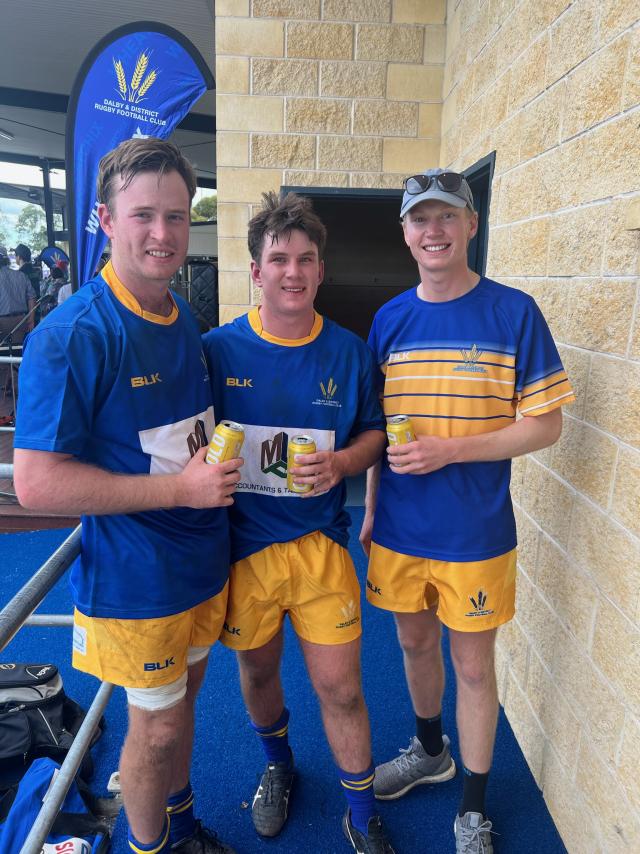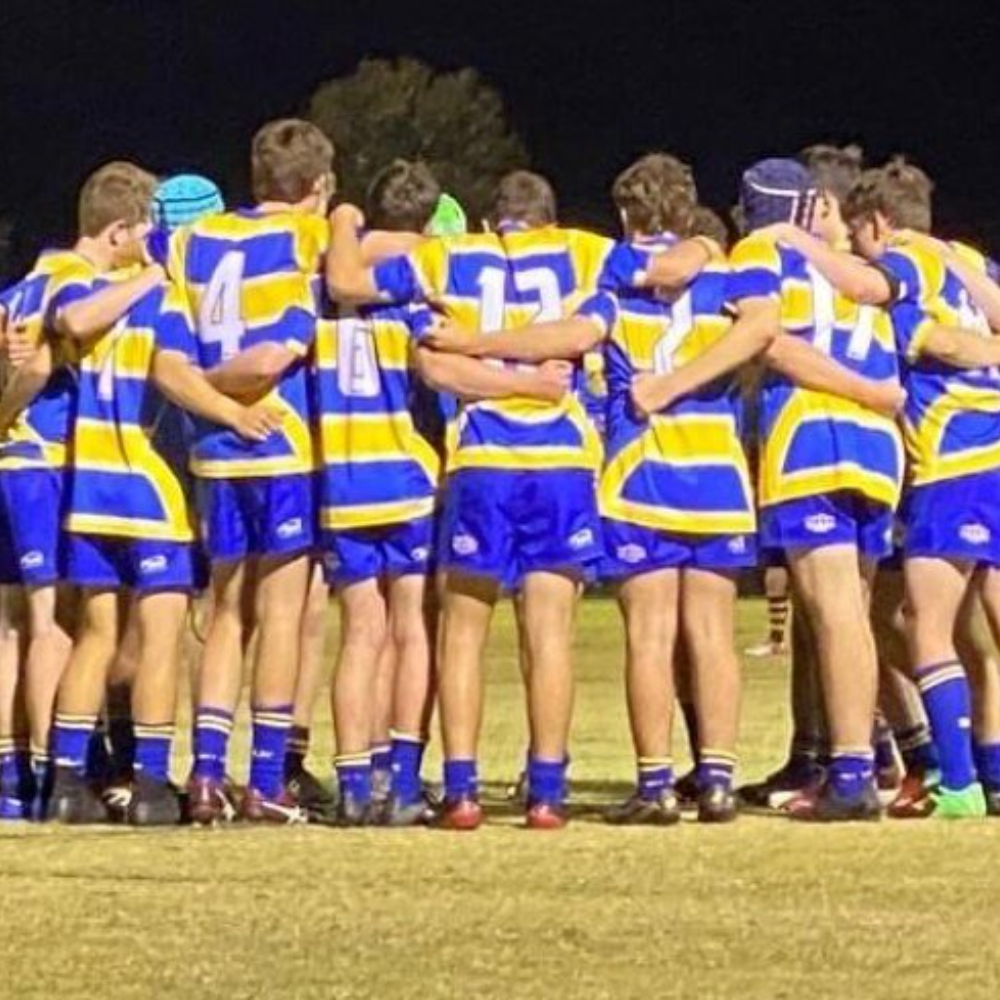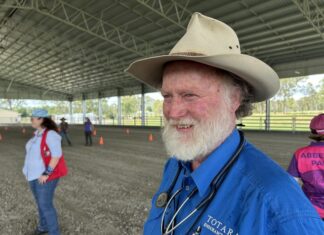Some professional cliches about rugby union are actually meaningful and true when applied to country clubs.
“It’s more than a game”, for example.
Oh, it certainly is.
Sporting associations are the lifeblood of many rural towns.
Indeed, many have become so woven through the social fabric of these centres that to lose them is to compromise residents’ wellbeing.
Andrew Johnston, president of the Dalby & District Rugby Union Football club, agrees. Passionately.
As an agronomist, he is close to his farming clients throughout the Darling Downs and sees personally the psychological and social benefits they gain from the comradeship so unique to country clubs.
“The severe drought in 2018 and 2019 caused a tough time and a lot of people were battling mentally,” Mr Johnston said. “The struggle was real.
“So, to me, I look at rugby from a mental health point of view, from a networking point of view and from a community point of view.
“Our club has become the central point for farmers to come and have a drink, enjoy the afternoon with mates and bring their family.
“And, if we can win a few games, well that makes it all a bit better.
“But the whole emphasis has been to get farmers off their properties. You know, a lot would just work all day, every day.
“And if you don’t create something special for people to come in and socially interact, they just won’t do it.”
Professional football teams now talk of “creating culture”, which is a literal phrase in that its players must create a common ground, having been selected from different parts of Australia.
Country clubs such as the Dalby Wheatmen, by contrast, have organic culture, the kind nobody has to announce out loud to make real, and it has very little to do with winning games.
The clubs are tied inextricably to the identity of the towns and the places they represent. Of course, they are bound too by the traditions of the regions in which they exist, the great silence of the land and the tough decency of the people farming it.
“To us, it’s not just playing footy,” Mr Johnston said. “It’s about building camaraderie around young kids, mentoring them and creating a good environment where they can enjoy each other’s company and be a positive part of the community.
“They get a bad rap sometimes but we’ve got a lot of great young kids and it is setting the right standards for them from an alcohol perspective, from playing with their teammates to ensuring the dress sheds are cleaned.
“And, well, it’s not perfect, we still have a long way to go but we won’t accept grubs off the street who just want to come and drink beer and take somebody’s head off. We want good young men who can represent our club and community with pride.”
The Dalby Wheatmen’s positive off-field culture has been enhanced by a street smart, savvy board of directors, which runs the club like a business and, according to Mr Johnston, now oversees “one of the biggest sports associations” in rural and regional Queensland.
“It’s a big, community-based club that does a lot of fundraising for the town,” he said.
“It’s a team effort to get to this point and we’ve had some tough years. We’ve been on a bit of a roller-coaster.
“But, certainly, over the past five years it has grown and the community has rallied behind it.”
More than 200 members are this year registered to play in the juniors, teenagers, seniors and women’s, with 2021 the club’s most successful in its 58-year history.
The women won the grand final, as did the men’s B and C grades and under 17s, while A grade placed second.
“The club has been successful from a trophy point of view, definitely.
“Not showing off too much, but we are probably one of the stronger clubs in the Darling Downs competition.”
Mr Johnston, 50, said over the past five years the board had run an old boys’ membership drive to introduce a different demographic to the club.
“One of my passions has been to bring a lot of the guys my age that sort of drifted away a little bit through kids and work to come in and give back to the club,” he said.
“We’ve got more than 100 members in the old boys, which is very solid. And they pursue their own fundraising projects to raise money for infrastructure such as goal posts or a new scoreboard.”
Born and bred south of Dalby, Mr Johnston grew up playing all sports with three brothers and, while he particularly enjoyed cricket and swimming, rugby has been his passion since the age of seven.
He inherited his love of the game from his father Leigh who is credited with being one of the founders of rugby in Dalby in 1964.
Leigh Johnston is now a life-member of the Dalby Wheatmen, Andrew has been involved as a player – alongside his three brothers – and administrator since returning from boarding school, his wife has been treasurer, his three sons play and his daughter participated through the junior competition.
“In my final year, which was 2018, I won the C grade premiership with my eldest son so that was pretty special.
“Now the two younger boys want me to play with them too, but my body’s too old. I just can’t do it anymore!”
As well as owning and operating a successful business, Dalby Rural Supplies and heading up a successful rugby club, Mr Johnston grows cotton, barley, sorghum and mung beans across 2023 hectares north of the town. And, he also delivers 560 fattened steers to the feedlot annually.
“As someone said to me a long time ago, ‘If you want to get something done, you give it to someone who is busy’,” he said.
“But, look, I get a lot of joy out of the club. I’m very passionate about it and it’s a bit like my business. I’m proud to wear my company badge around town because I know it’s highly thought of.
“I’m very proud of what we have achieved as a club. And, as I have said, I look at it more than just playing football. Yes, we want to play, yes, we want to be competitive – everyone loves winning – for me, however, it’s a lot more than that …
“But, of course, a country club is only as good as the volunteers you have so we all have to keep pulling together and working hard to keep the dream alive.”










